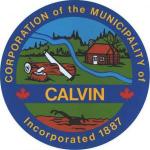Property tax is one of the most disliked taxes in Canada. Go into any coffee shop and people will tell you what they paid last year down to the last penny. Ask them how much they paid in HST last week on various purchases or what they paid last year in personal income tax and that becomes more of a challenging issue.
Property tax is visible. Everything a local council decides to build or provide in municipal services becomes a focal point at the breakfast table and an instant issue for debate as it applies to a homeowner’s bill for the upcoming year. Yet, it’s not a fair tax in the sense that it doesn’t reflect an individual property owner’s ability to pay. Nor, as studies have shown over the last two decades, does it provide municipalities with the equivalent growth of revenues enjoyed by the federal and provincial governments through their acquisition of consumption taxes.
Coupled with this inequity is what is simply known to local councillors as the formula. This is the division of taxes in Canada whereby cities get 9 cents out of every dollar of tax collected from coast to coast, while the federal government acquires 49 cents and the province receives 42 cents. The city’s portion is a paltry allocation that has its roots in tax policies and governance issues that pre-date Confederation and is now over one hundred and fifty years old.
However, for local residents this news doesn’t get much better. In Ontario, taxpayers across the province in all municipalities pay more property tax on average than all the other provinces in Canada as a result of the partial downloading onto the cities in the 1990s of such items as social housing, social assistance, land ambulance etc. These don’t belong on the local bill and they are clearly provincial responsibilities.
Nevertheless, when city councillors start to analyze their budget options for 2013 and before they even open the books, they know what the general public doesn’t sometimes realize. These costs are built into the final bill. Likewise, so are the arbitration awards for police and fire services along with mandated legislation such as source water protection initiatives and accessibility directives that are passed on to municipalities from Queens Park to be funded from the property tax. It’s not that these programmes are not valuable or needed in the community, it is just that the heavy handiness of the Queens Park bureaucrats (who actually run the province) and the complete abandonment of the legislature in financing a number of these new mandates is partially what makes the efforts of locally elected officials so challenging at the beginning of every municipal budget. Added to this is the fact that the property tax system in Ontario is regressive in nature. It doesn’t increase with an expanding economy and along with user fees it is unable to sustain all the new challenges that cities are now facing such as immigration, an aging population and social housing.
Consequently, local officials take the full brunt of criticism about property taxes which in turn has the unfortunate consequence of directing them away from approving any desirable and sometimes needed improvements in their community because of the public’s ringing demand for minimal increases. As a result of this constant barrage, councillors tend to take a custodial approach to how they view both their municipal responsibilities and budgets while at the same time somewhat ignoring the future implications of the global marketplace.
In all, cities don’t control their destinies because they don’t control the legislative authority that structures their responsibilities and revenue sources. Yet more discouragingly, they aren’t respected by the upper orders of government who consider local councillors and mayors to be nothing more than the poor cousins or country bumpkins in the political hierarchy of democratic institutions across Canada. That’s one of the main reasons why the province or Ottawa at any time can financially maul the local officials with new regulations, expensive legislation and downloading that drives the costs onto the local property tax.
Yet, despite all this and despite the flaws of the property tax system which projects so many unfair burdens on municipal ratepayers, locally elected officials still remain the most accountable, transparent and accessible representatives. They are the “Walmart Specials” of elected officials in Canada. They are the closest officials to the people. They work just as many long hours and without many of the same supports that MP’s and MPP’s enjoy and they do it all at a fraction of the cost. They construct their budgets in full public view and are completely approachable most days of the week. Yet, more importantly, they do something that the other orders of government have found to be an insurmountable task in recent years. Local councils, despite all the imposed challenges, balance their budgets on a yearly basis.










